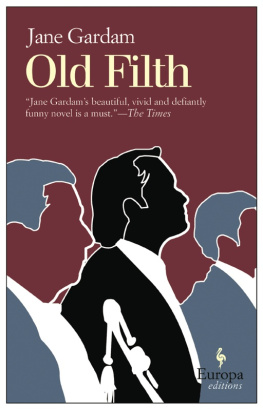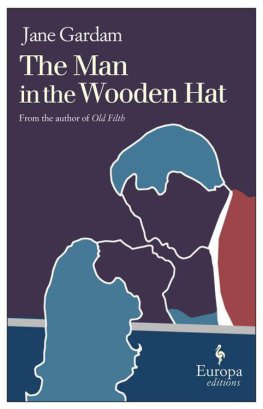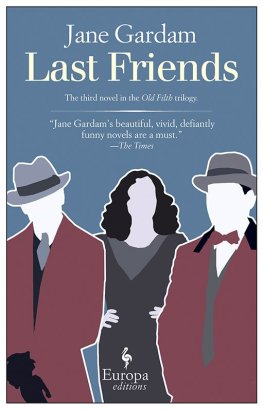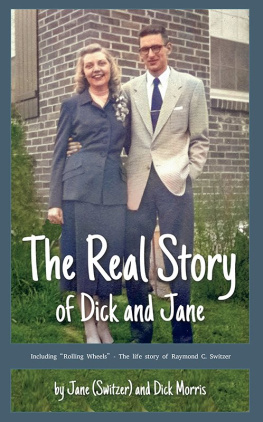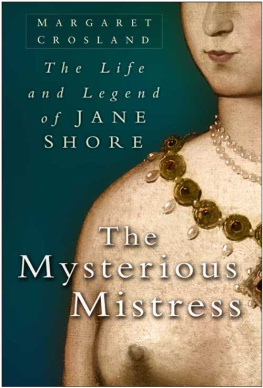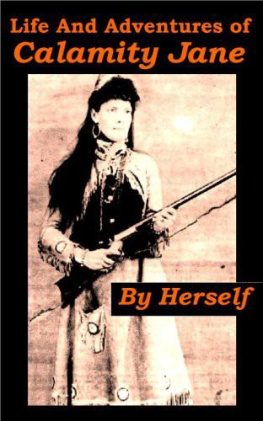THE FERMENT
A fter her funeral, Filth, now old as time, was at his desk again. Garbutt, the odd job man, trundled a wheelbarrow stacked up with ivy between the sun-lounge and the tulip bed. Garbutts jaw was thrust forward. He was lusting after a bonfire. The woman, Mrs. Thing, arrived at Filths shoulder with a cup of coffee, then with a Ewbank sweeper.
Lift your feet a minute and let me get under them and then Ill leave you in peace, she said. Heres more letters. Shall I come back with your ironing tonight? I could make you a salad. The way he goes at that ivy!
Thank you, no. Perfectly capable, said Filth. I must keep at desk.
I liked the ivy, she said. Not that my opinion...
Its done now, said Filth.
Im sorry. Well, theres plenty in the fridge and youve only to phone up...
Letters, he said. Letters. Many, many letters, and he picked one up and waved it about to get rid of her. There were no black-bordered ones now, thank God. They had disappeared with the Empire. This one was in a pale green envelope and came from Paris. As the woman, Mrs.-er, slammed the front door and Garbutt stamped past again with the empty barrow, Filth had the sensation of a command not to open this letter and looking across the garden saw Betty standing on the lawn watching him with an expression of deep annoyance.
Ha! he said, and stared her out. Leave me be, he shouted. He picked up the ivory paper knife to slit the envelope and saw the name: Ingoldby . He stared, looked back at the now empty lawn, looked down again.
Not the Colonel or Mrs. Ingoldby, long ago gone. Not Jack or Pat. No issue there. I. Ingoldby , it said on the envelope and so it must be Isobel. Ye gods.
Well, Id better face it.
The year that Eddie left Sirs Outfit for his Public school, he was to spend the summer as usual at High House. Pat Ingoldby, a year older, had left Sir the year before but had written a weekly letter from the new school to Eddie and Eddie had written back. Other boys did the same with absent brothers. Sir had insisted from the start on weekly letters to parents and, although Eddie had had none back from his father, the habit had continued until Pat moved on. Then Eddie had struck, and asked to write to Mrs. Ingoldby instead of his father and, as Eddies stammer was threatening again after Pats departure, Sir agreed, and Mrs. Ingoldby did write back occasionally, in a hand like a very small spider meandering across the thick writing paper and passing out and dying off in the faintest of signatures. Years later, in a different life, Eddie found that his father had kept all his letters from Sirs Outfit, numbered carefully and filed in a steel safe against the termites. Eddies letters to Mrs. Ingoldby and to Pat did not survive.
Sir had also insisted on letters being written to Auntie May, who occasionally sent a postcard; Uncle Albert, her missionary husband, once sent the school a coconut for Christmas.
Pats short, succinct, witty letters from the new school were a great pleasure to Eddie. He absorbed everything offered for his information: accommodation, lessons, boys, games (which were more important than church), menus, lack of humour among staff. Both boys missed each other but never referred to the fact, nor to the fact that the fraternal arrangements of the holidays would of course continue. Eddie wrote to his aunts, one of about three letters in his five years with Sir, asking if he could have some of the money his father had put aside for him, to give Sir a present, and Aunt Muriel sent a ten shilling note.
I dont accept presents, said Sir, looking briefly at Three Men in a Boat . This is a clean school. No nonsense. But yes, Ill have this one. Send your sons here when youve got some. Present us with a silver cup for something when youre a filthy rich lawyer, I dare say? Yes. Youll be a lawyer. Magnificent memory. Sense of logic, no imagination and no brains. My favourite chap, Teddy Feathers, as a matter of fact. I dare say.
Thank you, Sir. Ill always keep in touch.
Dont go near Wales. And keep off girls for a while. Soon as girls arrive exam results go down. Passion leads to a Lower Second. Goodbye, old Feathers. On with the dance.
High Houseit was now 1936where Eddie now brought all his (few) possessions, was reassuringly the same and here was Pat on the railway platform, taller and spotty, with a deep voice but still talking. Talking and talking. There was to be a girl staying, he said, but not to worry as almost at once she was going off on holiday to the Lake District with his mother.
Shes here already. Shes a cousin. Pas niece. Shes causing trouble.
But up at the House there was no sign of this cousin and nobody mentioned her and she didnt show up all day.
The next day at breakfast Eddie asked the Colonel about her.
Hows your niece, Sir?
Done very badly in her Higher School Certificate. And shes too old to try again. I tell her nobody will ever ask her what she did and shell forget it herself in six months. Shell find a husband. Poor fellow.
One cant be sure, said Mrs. Ingoldby. Shes rather secretive . Ive a feeling that a husband isnt on the cards. And very stubborn, Im afraid. Ive sent her breakfast up as she has a headache. And shes upset.
The next day there was a sighting of Isobel Ingoldby pacing about the garden, up and down, up and down in the rain with a haversack on her back.
Is she going somewhere? asked Pat.
She talks of Spain. She has an urge to help the rebels. I thought I might telegraph her parents.
Let her be, said Pat. Shell be in for dinner.
But did she have breakfast ?
Well, it was all laid up for her on the sideboard.
I wouldnt want her going home and saying wed given her nothing to eat. And oh dear, look! Maybe she didnt have breakfast.
Isobel could be seen writhing about in her haversack and then disembowelling it on the grass. She took from it a hunk of bread, stood up, tilted back her head and began to devour it. Her eyes seemed closed. Praying perhaps.
I think she may be a little peculiar, said Colonel Ingoldby. There is some of that in the Ingoldbys. Not Pat, of course, dear, and certainly not Jack.
Elder brother Jack, the beloved, now passed through High House only very occasionally. Sir and the familys traditional public school had seen him to Cambridge and he was there or abroad most of the time, swooping through his old home, once or twice a summer, bringing rare and various companions, playing wonderful tennis, clean and groomed, at one with his parents world. Mrs. Ingoldby, like a dog which awaits its master, seemed to know by instinct when he was on the way. Just a mo. Isnt that Jack? They would listen, then continue life, and a few minutes later would come the splutter and roar of Jacks car, its silver body tied up with a classy leather strap.
Eddie had an instinct about Jack, too; that Isobel was being kept away from him and that was why she and Mrs. Ingoldby were off to the Lake District. That was why Isobel was peculiar. Seeing Isobel in the garden he could tell that the Lake District and her godmother would not be sufficient for her.
Oh, do bring her in, said Mrs. Ingoldby, or at any rate someone go and talk to her... You, Eddie. Would you go? Youll be new to hershe finds us boring. You could talk to her about the Spanish Civil War. I dont want any stories about our neglecting her going back to Gerards Cross.
So Eddie had walked rather awkwardly across the lawn and into the trees, on his fourteen-year-old lengthening legs and oval knees. His curly hair; his hands in his pockets like some of the more blas of the Mr. Smiths had been. His feet in scruffy sand-shoes very huge; his height endearing. His voice, breaking, was surprising him all the time by sudden booms and squeaks. Yet there was grace about him. He hadnt taken in a thing about the Spanish Civil War.

